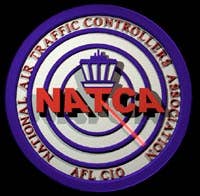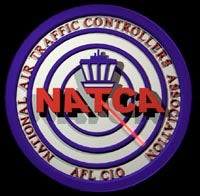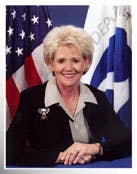…NATCA Breathes “Sigh Of Relief”?…
FAA spokesman Greg Martin told AVweb the one-year privatization ban was an easy compromise for the agency to make since it had no immediate plans to expand the contract tower program or any other aspect of ATC. Throughout the debate, Martin insisted that the privatization provision merely provided long-term flexibility needed to address looming staffing issues (as large numbers of Reagan-era controllers near retirement age). The National Air Traffic Controllers Association (NATCA), which has long said it would settle for nothing less than a permanent moratorium against further privatization, found reason to cheer Friday’s events. “The American public can breathe a sigh of relief for now,” said NATCA President John Carr in a release. “Congress has declared that selling out air traffic control to the lowest bidder will not be tolerated.” Not for another year, anyway.

 FAA spokesman Greg Martin told AVweb the one-year privatization ban was an easy compromise for the agency to make since it had no immediate plans to expand the contract tower program or any other aspect of ATC. Throughout the debate, Martin insisted that the privatization provision merely provided long-term flexibility needed to address looming staffing issues (as large numbers of Reagan-era controllers near retirement age). The National Air Traffic Controllers Association (NATCA), which has long said it would settle for nothing less than a permanent moratorium against further privatization, found reason to cheer Friday's events. "The American public can breathe a sigh of relief for now," said NATCA President John Carr in a release. "Congress has declared that selling out air traffic control to the lowest bidder will not be tolerated." Not for another year, anyway. NATCA spokesman Doug Church told AVweb that despite the moratorium's short duration, he considered it a victory and that the "House and Senate pushed it as far as they could." He acknowledged the fight is far from over. "There is another battle for another day," he said. Where and how that battle will be fought isn't clear since the FAA bill, once signed by the president, is set in stone for four years. Church said NATCA hasn't yet formulated a plan to resurrect the issue when the moratorium period runs out. In his statement, Carr said the final deal shows that "Congress knew that the flying public was not going to tolerate privatization." He said NATCA will be watching the government closely to ensure the terms of the compromise are met.
FAA spokesman Greg Martin told AVweb the one-year privatization ban was an easy compromise for the agency to make since it had no immediate plans to expand the contract tower program or any other aspect of ATC. Throughout the debate, Martin insisted that the privatization provision merely provided long-term flexibility needed to address looming staffing issues (as large numbers of Reagan-era controllers near retirement age). The National Air Traffic Controllers Association (NATCA), which has long said it would settle for nothing less than a permanent moratorium against further privatization, found reason to cheer Friday's events. "The American public can breathe a sigh of relief for now," said NATCA President John Carr in a release. "Congress has declared that selling out air traffic control to the lowest bidder will not be tolerated." Not for another year, anyway. NATCA spokesman Doug Church told AVweb that despite the moratorium's short duration, he considered it a victory and that the "House and Senate pushed it as far as they could." He acknowledged the fight is far from over. "There is another battle for another day," he said. Where and how that battle will be fought isn't clear since the FAA bill, once signed by the president, is set in stone for four years. Church said NATCA hasn't yet formulated a plan to resurrect the issue when the moratorium period runs out. In his statement, Carr said the final deal shows that "Congress knew that the flying public was not going to tolerate privatization." He said NATCA will be watching the government closely to ensure the terms of the compromise are met.






